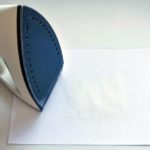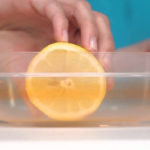Quick Dishwashing Tips
Tip 1: Use Salt
Why can you clean dishes with salt? Because salt contains alkali that can disinfect, kill bacteria, and effectively remove oil and stains. The method is very simple: You just need to rub the dish with salt or wipe off the dirt on the dish, then rinse with clean water.
Tip 2: Add Lemon Peel to Dishwashing Water
Adding a few slices of lemon to dishwashing water can bring a natural fragrance to the dishes and also remove oil stains. If the dishes are not too greasy, you can try this method and also reduce water consumption by half.
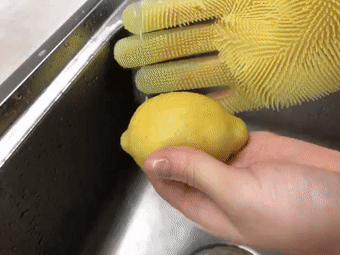
Tip 3: Rice Water
Rice water has alkaline properties and contains starch and other oil-absorbing substances, so it has strong grease removal ability. Moreover, rice water is made up of natural ingredients and does not contain any chemicals, so washing dishes with rice water is much better than using dishwashing liquid!
Tip 4: Add a Spoonful of Flour to Dishwashing Water
Pour a little flour into the dishwashing water before washing the dishes. The flour can absorb oil and grease, and it will absorb most of the oil and grease in the dish. After the oil is absorbed, rinse with clean water. You can use expired flour or spilled flour to wash dishes, which will save you a lot.
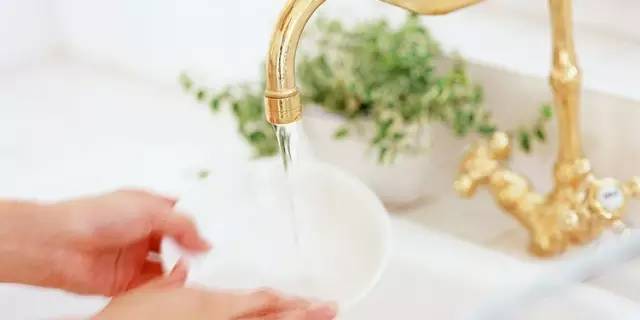
Tip 5: Sort Before Washing
If you put all the dishes in the sink at once, the dishes will become messy over time and the time and effort needed to clean them will double. Instead, you should sort them by type and purpose of use to make dishwashing easier. For example, cups and bowls, oil containers together. A small habit can save you time and energy, why not start trying it today?
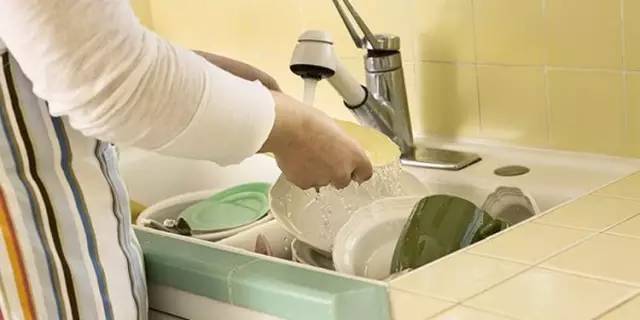
Tip 6: Use Dishwashing Detergent Moderately
Using too much dishwashing liquid does not make it easier to remove dirt, on the contrary, using too much will only waste more water and leave chemical residues on the pan. Therefore, you should use dishwashing detergent in moderation. At the same time, it is best to use environmentally friendly detergents to minimize environmental pollution.
Tip 7: Wash Dishes in the Right Order
Washing dishes in the right order can effectively save detergent and water. The correct order is: Glassware like cups or plates -> Forks, spoons -> Rice bowls or low-oil soup bowls -> Plates, dishes with oil.
Tip 8: Soak Burnt Pans in Advance
If the food in the pan is burnt, soak it in warm water first, then proceed to scrub. If the burnt residue does not come off, just add a spoonful of baking soda to the water, boil for a while, and then rinse thoroughly.
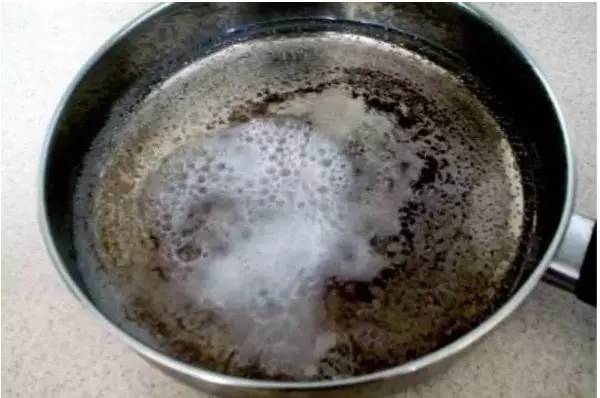
Tip 9: Remove Oil from Pans and Dishes in Advance
If you leave a lot of grease in the sink like that, other dishes will also be oily and very difficult to clean, wasting detergent and water. So, before washing, clean the oil on the pan with a paper towel.
Source: An Nhiên – Vietnamnet
Flour‘>How to Achieve Delicious and Attractive Moon Cakes Using the Right Flour
Discovering Unusual Ways to Utilize Salt
Table salt: a staple for the kitchen table, and a surprisingly powerful and versatile tool for cleaning, preserving and more! From preventing the discoloration of vegetables to repelling termites to deodorizing shoes, the uses of salt extend far beyond the kitchen.


























